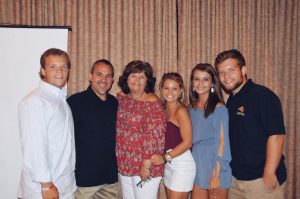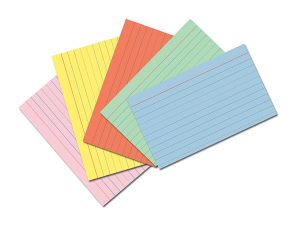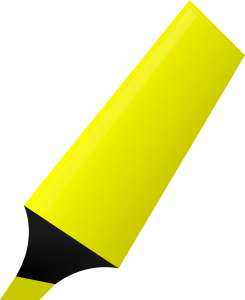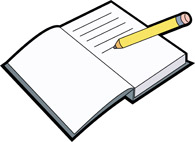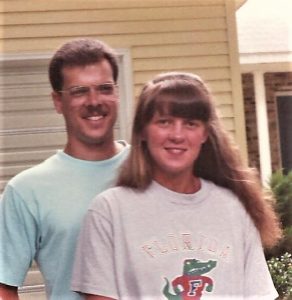Shannon McNulty
What Does Jabr Really Mean?
In the article, “The Reading Brain in the Digital Age: The Science of Paper versus Screens”, Jabr explains that people have become so reliant on the online reading material and ebooks rather than classic paper text. He continues on to say that people are unable to follow the material they are reading and recall where the essential information is placed. He referenced various studies and statistics in order to support his claims. Overall, the article simply explains there is lack of attention while reading ebooks and online material unlike reading printed texts. Jabr provides many studies and statisitics in order to support his claims throughout the article.
Ferris Jabr wrote the article “The Reading Brain in the Digital Age: The Science of Paper versus Screens. According to Jabr’s own website, ferrisjabr.com, he is a writer in Portland, Oregon who works for Scienific American. He has also written various other articles for many other sites such as The New York Times Magazine and Slate. Jabr has a MA degree from New York University in journalism and a Bachelors of Science degree in psychology and English from Tufts University (“About”). Considering all of this background information about the author, I can conclude that this article is a reliable source as he has background in writing and psychology.
In this article the targeted audience is most likely people who enjoy reading scientific articles as the article is on Scientific American. People who subscribe to Scientific American are people who have an interest in science and articles relating to science. Another reason scientific people are targeted is the article states many scientific facts as well as scientific studies, for example, Erik Wästlund conducted a study on whether paper or screens demand more physical and cognitive resources, Jabr referenced this study in his paper. The article could also appeal to people interested in psychology as many psychologists are referenced for certain studies they have done relating to Jabr’s topic. The secondary audience present may be students using this article for school or research purposes, similarly to me.
The main purpose of the article was to inform readers about the difference between reading ebooks and texts online rather than paper texts. It goes on to say that digital texts are increasing in popularity and therefore more people are experiencing effects of reading digitally rather than physical texts. Jabr makes various claims the first one being that people prefer reading paper text but digital reading is a lot more convenient and is available in many different forms so people tend to rely on it more. Another claim Jabr makes considers how paper texts allow us to navigate long readings and comprehend them but in return. digital reading does not allow readers to have the ability to map what they are reading and help them to comprehend the text. Jabr references how the brain treats letters as physical objects in which creates a “mental representation of the text” (Jabr, “The Reading Brain in the Digital Age: The Science of Paper versus Screens”), which in return helps readers focus on a paper back book and easily navigate the book. However, screens do not allow this and rather trouble people by getting in the way of their journey of reading (Jabr, “The Reading Brain in the Digital Age: The Science of Paper versus Screens”). According to a study by Anne Mangen referenced by Jabr, the inability to navigate the text hinders ones ability to comprehend. An additional claim found in Jabr’s text is exhaustive reading, which refers to reading that causes more attention than normal causing a drain in a readers attention span. Unlike text reading, with digital reading comes the aspect of light that may cause glare and cause readers eyes to get more tired during long periods of reading. However, this does not occur with paperback books as they tend to be gentle on readers eyes (Jabr, “The Reading Brain in the Digital Age: The Science of Paper versus Screens”). The aspect of light can be a big factor when reading and can lead to loss of focus and possibly lack of comprehension. The final claim made by Jabr is readers attitudes when approaching their text, he explains that most readers tend to take digital reading lighter and tend to have the mindset to skim the reading. He mentions Ziming Liu who concludes that “people reading on screens take a lot of shortcuts” (Jabr, “The Reading Brain in the Digital Age: The Science of Paper versus Screens”), people tend to browse and hunt for key aspects rather than read the whole article. He provides many convincing claims throughout the article with lots of evidence for persuasion.
The article, “The Reading Brain in the Digital Age: The Science of Paper versus Screens” was published on Scientific American on April 11, 2013. The article is posted on the web probably so it is easily accessible. Readers will probably primarily read this article on a computer when having to do research on the subject matter, others may read it for interest in the psychological and science aspect of the article. It is listed under the sub category of Mind as it references many psychologists and focuses on the mental state of the brain when using different forms of reading.
The article is science based primarily focusing on psychology and research connecting the brain and reading together. Similar articles to “The Reading Brain in the Digital Age: The Science of Paper versus Screens” would relate to our articles having to do with the mind as well as other articles relating the brain to reading or on the subject of digital reading versus paper reading. The Scientific American sub categories the article into the mind category, this is probably primarily due to the article relating to the brain and having so many psychological studies involved. So generally I would say the genre of the article would be related to the mind or psychology, which is where the Scientific American placed the article as well.
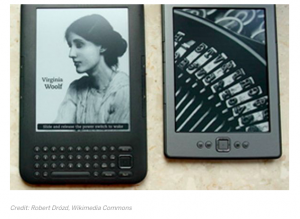
When reading the article “The Reading Brain in the Digital Age: The Science of Paper versus Screens” I noticed that it was written in black text with a white background in formal font, possibly mimicking a paperback book. The top of the page has the title enlarged to grasp the reader with a short one sentence summary in small gray writing below. This short summary is followed by sizable picture which is also in black and white, it is a picture of a digital reading device. The picture helps to provide a visual of a digital reader in case the audience is unaware and has never used one before. The only color found on the page is along the side under suggested articles relating to the current article being read as well as the advertisements that appear at the top of the screen and in the middle of the article. Another touch of color Scientific American includes is the big royal blue box trying to convince readers to subscribe now. Overall, the article was very simple and easy to navigate but it lacked intriguing images to drawl the reader in, however it was written in a science journal so that is expected. I would conclude that the article is a very helpful resource and Jabr is a reliable source.
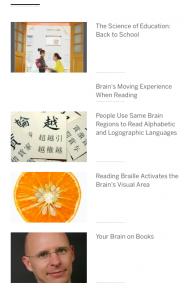

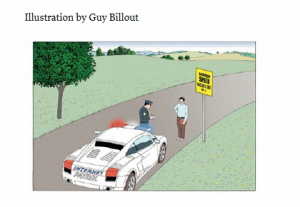
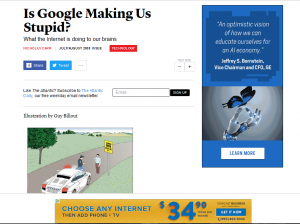



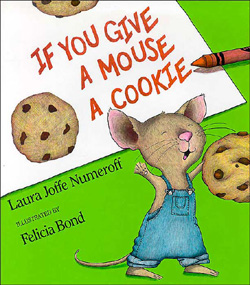

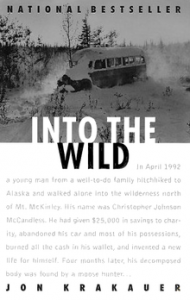 recognize important details in the book and understand the purpose of the book. My senior year I had Mr. Flemming again along with his student teacher Mr. Erdmann. That year we read
recognize important details in the book and understand the purpose of the book. My senior year I had Mr. Flemming again along with his student teacher Mr. Erdmann. That year we read

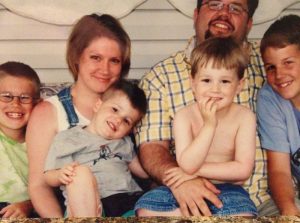




 Coming from a big family, I’ve always had the greatest support system. When spending time with my family and friends, I’m constantly learning something new every day from others. I’d like to describe myself as a social butterfly, outgoing, and adventurous. One thing I love more than anything is traveling because that’s the best way of learning. Constantly, I am learning something every day. Although, not everyone knows how I learn. Throughout my life I have had many difficulties with learning, mainly focusing on reading and writing. Many people have helped me through different ways of teaching. Without these people, I wouldn’t be who I am today. In some ways, I am forever grateful I do have this challenge because I’ve learned the benefit of hard work and how to overcome obstacles that stand in my way. Nothing comes easy, it takes effort and determination. I like to believe this challenge does not define who I am, but it is part of me.
Coming from a big family, I’ve always had the greatest support system. When spending time with my family and friends, I’m constantly learning something new every day from others. I’d like to describe myself as a social butterfly, outgoing, and adventurous. One thing I love more than anything is traveling because that’s the best way of learning. Constantly, I am learning something every day. Although, not everyone knows how I learn. Throughout my life I have had many difficulties with learning, mainly focusing on reading and writing. Many people have helped me through different ways of teaching. Without these people, I wouldn’t be who I am today. In some ways, I am forever grateful I do have this challenge because I’ve learned the benefit of hard work and how to overcome obstacles that stand in my way. Nothing comes easy, it takes effort and determination. I like to believe this challenge does not define who I am, but it is part of me.